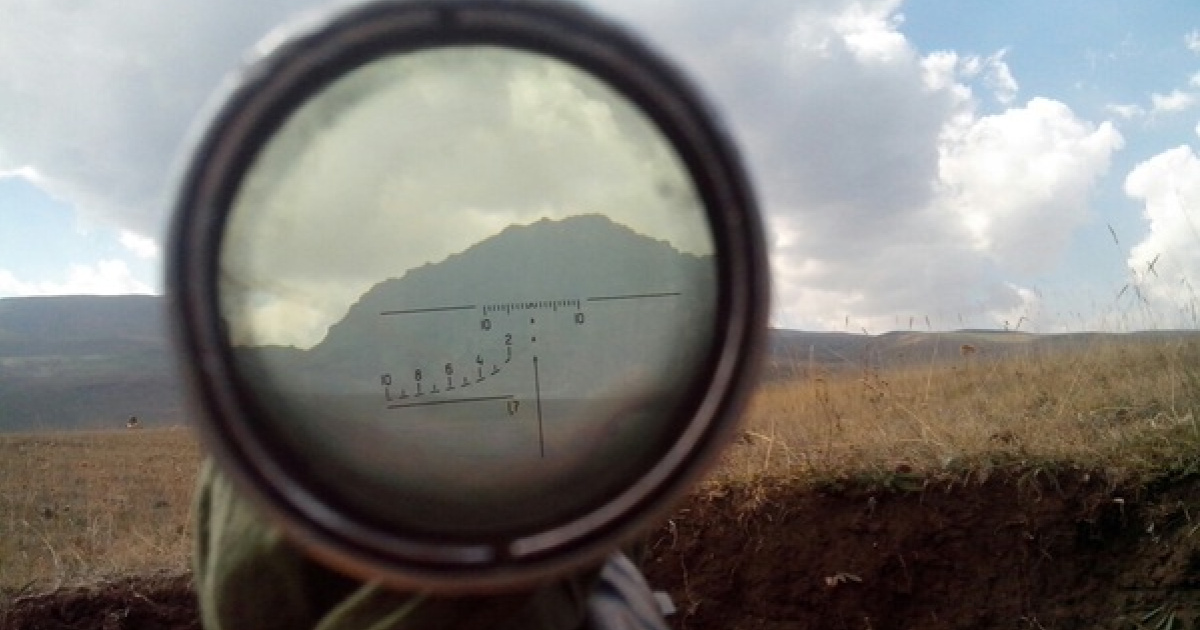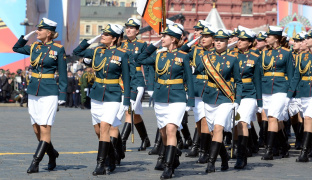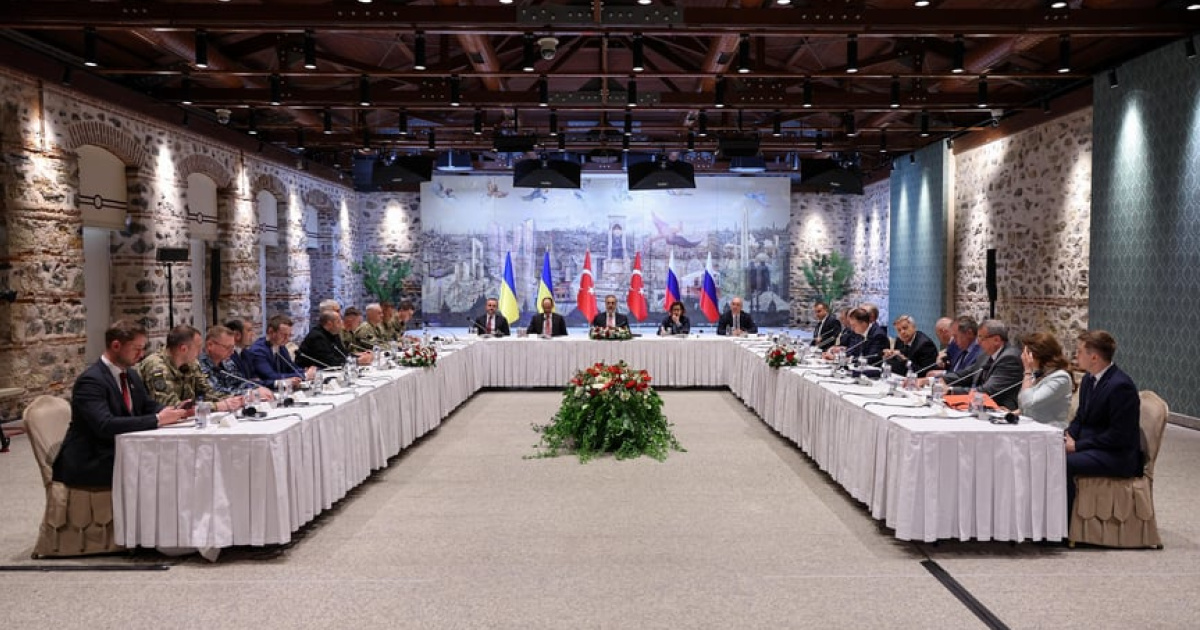For the last few weeks, positional war has been ratcheted up sharply in the East of Ukraine and the number of victims has increased both among the military and the civilians. Residents of the front-line territories compare the intensity of shelling with the hot phase of 2014. It is against this background that Russia concentrates three motorized rifle divisions on the eastern border of Ukraine. In the so-called "DNR" and "LNR", a campaign against the OSCE Monitoring Mission is being intensified. In its turn, the SMM reports the movement of military equipment from/to the Ukrainian-Russian border.
Denis Pushilin, one of the leaders of Donetsk collaborators and the head of their delegation in Minsk, stated that the mission vehicles will no longer be let out of turn at checkpoints. This happened after the OSCE SMM criticized the fact that it had not been allowed into occupied Novoazovsk. Moreover, Pushilin said that the "DNR" would refuse the presence of the OSCE, but this could give Ukraine a handle to demand the introduction of UN peacekeepers into the territory. He also stated that he would demand replacing the heads of the mission in Donetsk.
The separatists' leader ostentatiously pointed out a clearly hostile attitude to the OSCE mission. And if you analyze the media of the "republics", you can conclude the organized campaign against international observers.
The reasons for it were identified by the same Pushilin. "Earlier… they wrote letters to Zakharchenko and Plotnitsky about their goals and questions, now they just try to create a fait accompli, not directly, but by means of the Russian party…", - he said. Earlier, commenting on the blowing up of the OSCE vehicle by a land mine in the "LNR", Igor Plotnitsky had also said that this would not have happened, if the mission had warned the "authorities" where, when and why it was traveling.
If we add the facts of escalation at the front and hostile campaign against the OSCE observers together, it is possible to arrive at the conclusion that Moscow has something to hide in the Donbass. Is the preparation for a large-scale invasion a secret? It is unlikely, because, as long as the topic of the Minsk agreements is not closed, Moscow has a chance to achieve the disintegration of Ukraine and the civil war there via political and diplomatic means by the hands of Ukrainian authorities themselves and their Western partners.
Rather on the contrary, the Kremlin is trying to frighten the West with an escalation of war, so that Berlin and Paris lean on President Poroshenko in order for Ukraine to fulfill the Minsk agreements. Escalation in the Donbass traditionally occurs during the period of intensification of diplomatic activity around this conflict. Furthermore, the threat of escalation may become an argument for Germany, which opposes the transfer of American lethal arms to Ukraine. Kurt Volker stated this possibility after visiting the war zone.
It seems that international sanctions have not forced Moscow to abandon the idea of destroying Ukrainian sovereignty. It only changed the tactics, increasingly emphasizing that the war in the Donbass is an internal conflict, and Russia does not have anything to do with that. This is evidenced by the initiative of creation of the "Malorossia" state on the territory of Ukraine, announced in the Moscow-controlled Donetsk.
This idea, especially pronounced by Alexander Zakharchenko, whose words can rarely be taken seriously, seemed absurd at the first glance. But the very next day, Putin's assistant Vladislav Surkov clarified its meaning. A political technologist, close to Surkov, quoted him to a Russian news agency.
"The main thing here is that the Donbass is fighting not for the separation from Ukraine, but for its integrity, not for its part. That is, there is a civil war in Ukraine between people who see the future of their country in different ways", - Surkov allegedly stressed.
Surkov thinks that the aim of the "Zakharchenko's proposal" is "a broad intra-Ukrainian discussion" of this issue. And since it is "intra-Ukrainian", what sanctions can be imposed on Moscow? Moreover, even now, Russia sees its participation in Minsk talks not as a party to the conflict, but as an intermediary, the same as France and Germany. And the Minsk protocols do not really impose any obligations on Russia.
"Malorossia" has quickly vanished from the media, but it marked the trend quite clearly - Moscow will try to make the puppet republics "independent" in any way. Either by the internal policy of Ukraine (if it is able to "shove" them back on its terms via Minsk talks), or their official recognition, if Minsk does not work. Both variants will become its mechanism of destabilization and disintegration of Ukraine.
And the Kremlin has less time for this, as the socio-economic and humanitarian situation in the occupied territory of Donbass continues to deteriorate. One can notice this even by a considerably reduced volume of gas consumption by the "nationalized" industry. The seized enterprises have not found markets for their products even five months after the introduction of the "external management". The authorities of the republics accuse the owner of the "nationalized" Ukrainian enterprises Rinat Akhmetov, against whom an organized propaganda campaign is being conducted in Donetsk and Luhansk.
And the same campaign has begun against internally displaced persons who return to their homes in the occupied territory. They are being accused of sabotage and wrecking, as well as discriminated when hiring. We can assume that this is not just an attempt to blame their blunders on someone, but also the interest in reducing the number of people that Russia now has to support in the territories under its control.
In conclusion, I will cite Alexander Zakharchenko's words while presenting the "Malorossia" state as an illustration of the sentiments that prevail on both sides of the front line: "it is the fourth year of the war and we all see that the situation has not just reached a deadlock, - it has reached a dead end"...
Serhiy Harmash, Centre for Research of Donbass Social Perspectives




